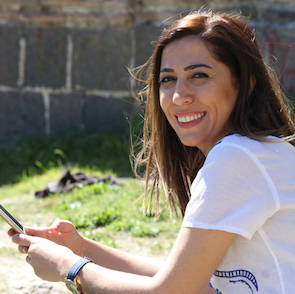
Front Line Defenders started receiving reports of HRDs being targeted in various ways in the early weeks of the COVID-19 pandemic. As the virus has spread, so too, seemingly, have attacks against HRDs, either via smearing and defamation online or in various ways, including physical attacks and criminalisation. Imprisoned HRDs, often held in deplorable conditions, are also at great risk of exposure and other health complications as facilities that cramped and with poor sanitation are potential contagion zones.
Front Line Defenders is producing a series on the impacts of COVID-19 on HRDs and the kind of measures that need to be taken in this unprecedented time to support the ability of HRDs to continue working, especially when civil liberties, human rights and fundamental freedoms are under even greater pressure on a global scale.
[20 April 2020] Since the outbreak of Covid-19, governments around the world have begun introducing and implementing sweeping restrictions on the freedom of movement and freedom of assembly. Such draconian restrictions are necessary to confront a rapidly contagious – and for some, lethal – virus for which there is yet no vaccine, but that some governments are using this crisis to specifically target human rights defenders (HRDs) is both concerning and revealing. The most recent example of this came over the weekend when 15 pro-democracy activists in Hong Kong were arrested for their alleged role in “organising and participating” in demonstrations last year. With the rest of the world distracted by the pandemic and a public unable to gather in protest, the Hong Kong authorities used the opportunity to round up some of those whose years-long human rights activism has made them well-recognised internationally and a thorn in the side of Beijing. Similar moves against HRDs in other countries can be expected over the coming months.
States have recognised that prison conditions enable the quick spread of Covid-19 and have subsequently released large numbers of prisoners, but HRDs remain jailed. As a result of their work exposing human rights violations, fighting for the rights of others and exposing corruption, defenders are seen by repressive governments as a fundamental challenge to their rule and are often singled out for the harshest treatment. In Iran, for example, where nearly 40% of its prison population has been released, women activists Nasrin Sotoudeh, Narges Mohammadi and Atena Daemi remain imprisoned for their peaceful work. Similarly, in Bahrain, King Hamad bin Isa Al Khalifa issued a decree granting pardons for 901 prisoners “for humanitarian reasons” last month, yet numerous human rights defenders, including Abdulhadi Al-Khawaja, were among those who remain in unsanitary prisons. In Spain, the Supreme Court warned civil servants in Catalonia that they could be committing the crime of “breach of official duty” if they authorised the release of political prisoners, including HRD Jordi Cuixart, to house arrest as part of a process by the Catalan government to make more room in prisons to cope with the crisis.
In mid-February 2020, as the coronavirus outbreak led to cities and counties across China imposing strict lockdown, a mother surnamed Wang and her two young children, with luggage in tow, walked for almost five hours in an attempt to return to their hometown in a neighbouring county after she was beaten by her abusive ex-husband. She called the police who refused to dispatch officers to help but instead told her to ask relatives to collect them, without offering to issue a special permit which was needed to travel between counties during lockdown. In the end, Wang’s relatives were left with no choice but to convince her ex-husband to drive the mother and children to the county border where they were picked up by their relatives.
That a victim must rely on their abuser to reach safety is a sobering indication of how far China still has to go in effectively addressing domestic violence, despite the coming into force of an anti-domestic violence law almost four years ago. Domestic violence is a systematic and widespread crime in China. According to a 2016 survey by the state-organised umbrella group All China’s Women Federation (ACWF), among 270 million families in China, 30% of women who are married have experienced domestic violence. On average, a woman is beaten by her husband every 7.4 seconds, and 40% of femicides resulted from domestic violence. Every year, 157,000 women in China commit suicide and 60% of these suicides are attributed to domestic violence.

















